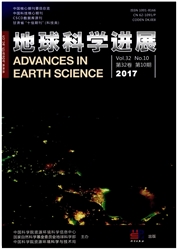

 中文摘要:
中文摘要:
IPCC第4次评估报告指出:近50年来,全球对流层温度趋于升高、平流层趋于下降;同时强调了研究结果中普遍存在的不确定性,造成不确定性的主要原因是原始资料、台站选取和不同均一化方法。从理论基础入手,系统地总结了国内、外近年来高空大气温度长期变化趋势的研究成果及其不确定性产生的主要原因,详细介绍了高空大气温度序列的质量控制和均一化方法,并对我国探空台站温度序列的不确定性进行了探讨。利用静力学方法进行质量控制,以最大资料缺测率30%作为序列取舍标准,用两相回归法和再分析序列均一化处理116个中国探空站高空温度序列。研究结果表明,1958年以来我国对流层中低层趋于升温,其中1980年以后升温尤为明显;而平流层下层显示降温。
 英文摘要:
英文摘要:
Current advances in upper air temperature change and its uncertainties were summarized briefly. IPCC-AR4 have been approved warming in the troposphere and cooling in stratosphere since 1958, but emphasized that the uncertainties about trend of long-term change are still substantial. In this paper we reviewed causes of the uncertainties in radiosonde temperature series. The approaches for homogenization were summarized and evaluated. Practices to homogenize temperatures series from 116 radiosonde stations revealed two-phase-regression and hydrostatic methods were suitable in China, and deduced critical maximum missing rate of 30% for examine reliability of the time series. Homogenized temperature series verified long-term change of upper air temperatures in China, with the mid-lower troposphere tending to warm especially after the 1980s and the stratosphere tendeding to cool after 1958.
 同期刊论文项目
同期刊论文项目
 同项目期刊论文
同项目期刊论文
 期刊信息
期刊信息
